Brookings Nonresident Senior Fellow Steven Pifer discusses the verbal attacks carried out by the White House against career diplomats testifying in the ongoing impeachment inquiry and concludes that while these diplomats have honored their oath of office, the president has not. This post originally appeared on FSI Stanford’s Medium.
For more than two weeks now, a stream of current and former U.S. officials, this week including Amb. Bill Taylor, have described to Congressional committees the White House’s sordid effort to outsource American foreign policy to the president’s lawyer, Rudy Giuliani, who sought to advance the personal political interests of Donald Trump. Faced with compelling testimonies to the effect that the president subverted U.S. national interests to his own, the White House has begun to trash those officials.
Even for this White House, that is a despicable new low.
The testimonies make clear that President Trump insisted on a quid pro quo, as his Acting Chief of Staff Mick Mulvaney confirmed in an October 17 press conference (he later tried to walk it back, but watch the video of the press conference). The president wanted Ukrainian President Volodymyr Zelensky to investigate a long-debunked charge about former Vice President Joe Biden, his possible opponent in the 2020 U.S. presidential election. President Trump also wanted the Ukrainians to check whether the Democratic National Committee’s e-mail servers might have ended up in, of all places, Ukraine (no one has offered evidence to suggest that they have).
The White House now seeks to deny that the president demanded a quid pro quo. Early on October 23, President Trump tweeted a quote from Republican Congressman John Ratcliffe: “Neither he (Taylor) or [sic] any other witness has provided testimony the Ukrainians were aware that military aid was being withheld. You can’t have a quid pro quo with no quo.” Wrong — read pages 10–11 of Amb. Taylor’s testimony regarding the hold on military assistance; the Ukrainians knew about the hold in August.
True, in late July the Ukrainians were not yet aware that the president had placed a hold on the Congressionally-approved military assistance. The White House and Mr. Giuliani at that time dangled a different quo: a meeting in the Oval Office. For a young Ukrainian president, just two months in office, a meeting with the American president held huge value. It meant enhanced credibility with his domestic audience and a signal of high-level U.S. support to bolster his position vis-à-vis Russian President Vladimir Putin, who has waged a low-intensity war against Ukraine for five years.
The White House has now turned to denigrating career officers who have testified, officers who have well and faithfully served their country for decades. In his October 17 press conference, Mr. Mulvaney talked about “career bureaucrats who are saying, you know what, I don’t like President Trump’s politics.” Press Secretary Stephanie Grisham went further on October 22, referring to “radical unelected bureaucrats.” On October 23, Vice President Mike Pence said, “an awful lot of the swamp has been caught up in the State Department bureaucracy.”
Let’s look at three of these “radical unelected bureaucrats” (full disclosure: these are former colleagues and friends):
Amb. Masha Yovanovitch has more than 30 years of service as a career diplomat. She has held three ambassadorships — to Kyrgyzstan, Armenia and Ukraine — twice appointed by President George W. Bush. Her tour as ambassador to Ukraine was cut short for no reason other than that Mr. Giuliani concocted a false story of Ukrainian scandal and sold the sorry tale to the president.
Amb. Mike McKinley served for 37 years as a career diplomat, holding four ambassadorships — to Peru, Columbia, Afghanistan and Brazil. In 2018, Secretary of State Mike Pompeo personally asked him to return to the State Department to serve as his special assistant and informal liaison to career personnel in the department.
Amb. Bill Taylor has served the United States for 50 years, beginning at West Point and as a U.S. Army captain in Vietnam. He later served as a Senate staffer and a diplomat in the Middle East, Ukraine and Afghanistan. President Bush was the one who appointed him ambassador to Ukraine in 2006. This June, he returned to Kyiv as charge d’ affairs (acting ambassador) following Amb. Yovanovitch’s unwarranted early recall.
True, none of these officials — or others who have testified, such as Deputy Assistant Secretary of State George Kent or former NSC Senior Director for Europe and Russia Fiona Hill — were elected. But none of them are radical, and the use of “bureaucrat” as a pejorative is an unworthy insult to people who have worked long and hard in service to America.
A primary duty of U.S. Foreign Service officers and ambassadors is to implement the policy of the president, be he or she a Democrat or Republican. But the president owes it to them — and to the American people — to pursue policies that advance U.S. interests.
Asking Ukraine to investigate a false claim about Vice President Biden or to look for DNC servers, when nothing suggests they might be in Ukraine, is not about advancing American interests. These are the personal interests of Donald Trump. In his July 25 phone conversation with his Ukrainian counterpart, President Trump raised only personal interests; he did not do a single piece of U.S. government business.
Another duty of Foreign Service officers and ambassadors is, when they go before Congress, to tell the truth. The truth clearly has made the White House unhappy.
Sadly, unjustified attacks on career officials seem part of the modus operandi of this president and his inner circle. It would be preferable if President Trump would remember the oath of office that he took — an oath of office very similar to the one that Ambassadors Yovanovitch, McKinley, and Taylor took. The key difference: they honored theirs.
The Brookings Institution is committed to quality, independence, and impact.
We are supported by a diverse array of funders. In line with our values and policies, each Brookings publication represents the sole views of its author(s).

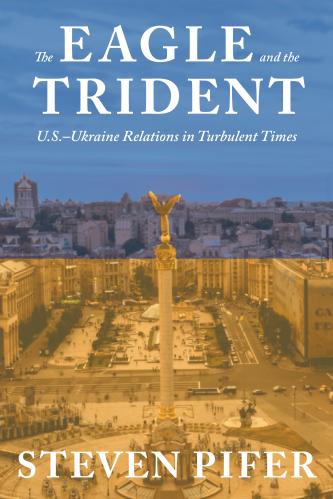
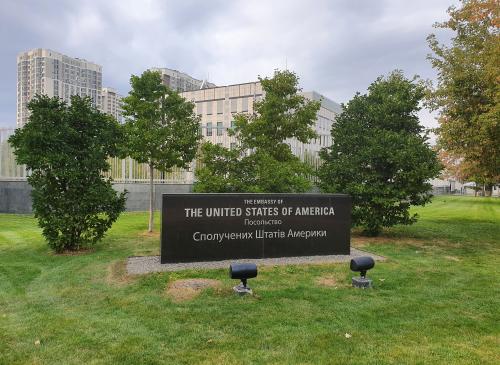
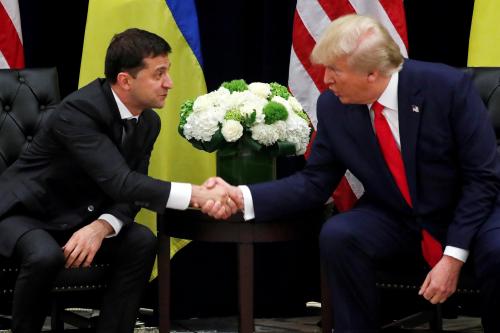
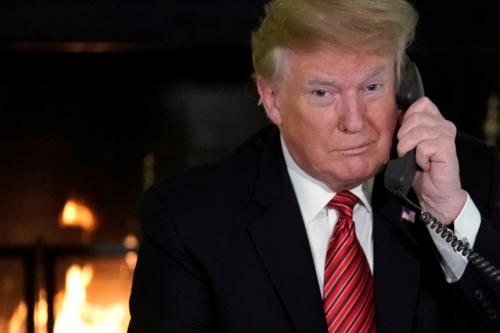



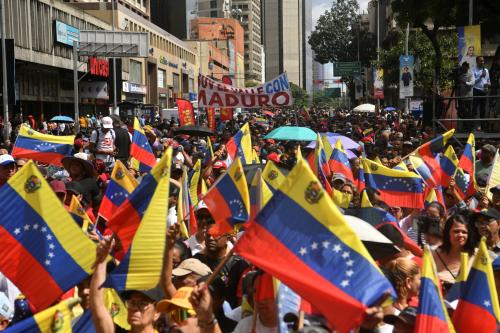
Commentary
Quid pro quos, bureaucrats, and duty
October 28, 2019